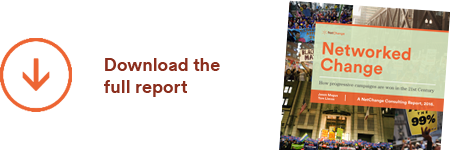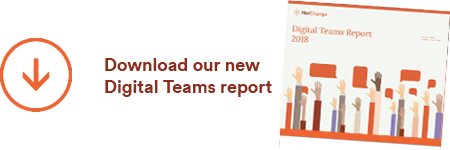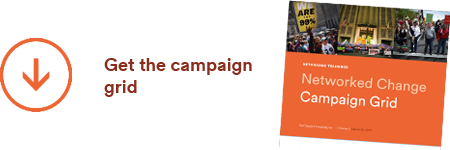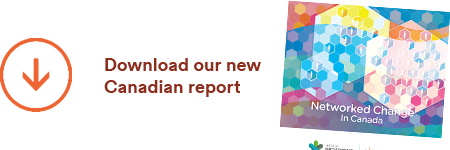This is a guest post from 350.org’s Executive Director May Boeve, who is speaking at Communicopia’s event today in New York. May wanted to share recent insights into how 350, a still very young networked organization, is approaching organizational learning and staff development while maintaining its nimble culture.
Learning about learning is fun. And after reading a whole bunch of interesting articles about “organizational learning,” it seemed like a good idea to go public with some experiments, ideas, and stories of our own.
350.org was founded in 2008 by a small group of friends and writer and environmentalist Bill McKibben, and has since grown into an international network encompassing hundreds of thousands of supporters worldwide, including active local volunteers in almost every country on earth.
Our external growth has been matched by expansion of our staff, and with it, an enhanced organizational architecture. In April, 2011, we joined forces with sister campaign 1Sky, and helped bring two climate movement organizing engines together. As we’ve continuously sought to scale our work, we’ve retained a goal of keeping internal processes light and maintaining a supportive and dynamic culture. Fostering this balance requires nimble leadership from every member of our expanding team.
Graceful growth
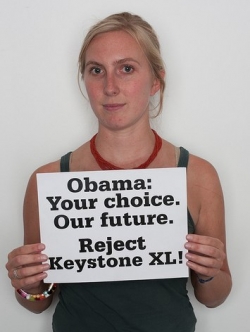 We have a very young staff (I turned 28 this year) compared with other organizations in our field, and our entire leadership team is comprised of people who have no formal training (graduate degrees, etc.) in non-profit management. As a result, there’s a lot we can learn, so professional development is a critical area for us. This past January, our entire staff prioritized professional development in addition to existing responsibilities.
We have a very young staff (I turned 28 this year) compared with other organizations in our field, and our entire leadership team is comprised of people who have no formal training (graduate degrees, etc.) in non-profit management. As a result, there’s a lot we can learn, so professional development is a critical area for us. This past January, our entire staff prioritized professional development in addition to existing responsibilities.
Why January? In the past it had been a quiet campaigning month for us (less so this year due to the Keystone XL campaign). Also, for the leadership team–all alumni of Middlebury College–January has special significance as a month reserved for out-of-the-box thinking and learning, because Middlebury’s academic calendar includes January-term, in which students take only one course that is often more unusual than Fall and Spring semester course offerings. It’s also a ton of fun. This month would hopefully stimulate new and innovative ideas for how we do things, and give us a chance to let our hair down a bit more.
This professional development focus included a variety of approaches. Each person on staff, no matter how long they’d been part of the team, chose from four proposed options:
- Allocating time to read articles, attend webinars, and/or in-person trainings concerning relevant skills (eg task management, climate policy familiarity, etc.)
- Attending a training facilitated by another member of the staff
- An externship with another organization (this was restricted to the Leadership Team for reasons I’ll go into further)
- Conversations with colleagues at allied organizations about bigger-picture strategy
The first is relatively straightforward, and throughout the month, we posted suggested readings or trainings on our internal social media site, Yammer. The most popular thread dealt with one stafer sharing his Myers Briggs test, which prompted twenty other people to do the same. We came out all across the board!
Internal skill-shares
The second was one of the most collaborative. On the assumption that many helpful skills are already possessed by members of our team, all were invited to submit a training that they would be willing and capable of leading for other staff. The other goal of this approach lay in bringing together members of our team who rarely work together directly. Because our staff work all over the world, some of the trainings represented the first time different staff members had spoken! This is important to us maintaining a nurturing, friendly, and fun culture.
These Intra-staff skill-shares are something we’ll definitely do again. For one, more trainings were proposed than the month could accommodate, and many people missed ones they wanted to attend. Some of the most popular were: effective use of the back-end web tools for 350.org, campaign-planning emphasizing movement-building, Gmail Jujitsu (taming the inbox), and values-based campaigning.
Cross-pollinating with other movement orgs
The third was the most experimental, and was inspired by a suggestion from our friend Becky Bond, Political Director at Credo Mobile. I asked her to share some tips and suggestions for 350 as we grow, and she suggested I come by the Credo office sometime and “see how they do things.” The idea of an immersive experience with another organization struck me a quite promising for our leadership, all but one of whom have never worked with anyone else
The externship was originally conceived to take place over a 2-week time period, but in the end we opted for a 2-3 day period for each person, spread over the month of January. Each of us could choose the group we sought to shadow, particularly those that do different types of campaign work than we do, share our values, are run by people we like and trust, and that are flexible enough to accommodate this.
The goal was to gain valuable contextual info about how other organizations run, and to bring that knowledge back to inform how we could work better, to provide some refreshing space for new ideas, and enable us to get to better know and learn from our partner organizations. The organizations we ended up spending time with were Witness, Greenpeace’s global Digital Mobilization Lab, Make the Road New York, National Domestic Workers Alliance, and Chesapeake Climate Action Network. Many thanks to all those groups for their help and for letting us in!
Some of the lessons we picked up on were: more face time among members of staff (not surprising considering we are a remote organization), how grassroots base-building organizations differ from an online-to-offline model like ours, how managers prepare for check-ins, how long strategic planning can take, and how different roles are shared among different members of staff.
Based on my own experience with the group Make the Road, and from our team debrief, this exercise is definitely worth pursuing as it helps us check assumptions about other ways of working, and to see different approaches in practice.
Big picture strategy deep dives
The last area, deep-dive conversations with allies, were only pursued by a handful of us. This is largely due to the fact that much of our work involves collaboration with other groups on a day to day basis.
All in all, January wasn’t as quiet for some of us as we wanted, so as a result some were able to take more advantage of the readings, trainings, and externships than others. However, merely setting the intention for January as a time to step back did put much more emphasis on learning than we’ve typically done.
There aren’t one-size-fits all approaches to organizational learning, but to the extent that some of these ideas spark new ones for you and your organization, please do share them! And by all means, get in touch with us if you’d like to learn more about any of what’s mentioned above.
May Boeve is the Executive Director of 350.org, and also a co-founder. She is the co-author with Bill McKibben of Fight Global Warming Now, and lives in Brooklyn, NY.







